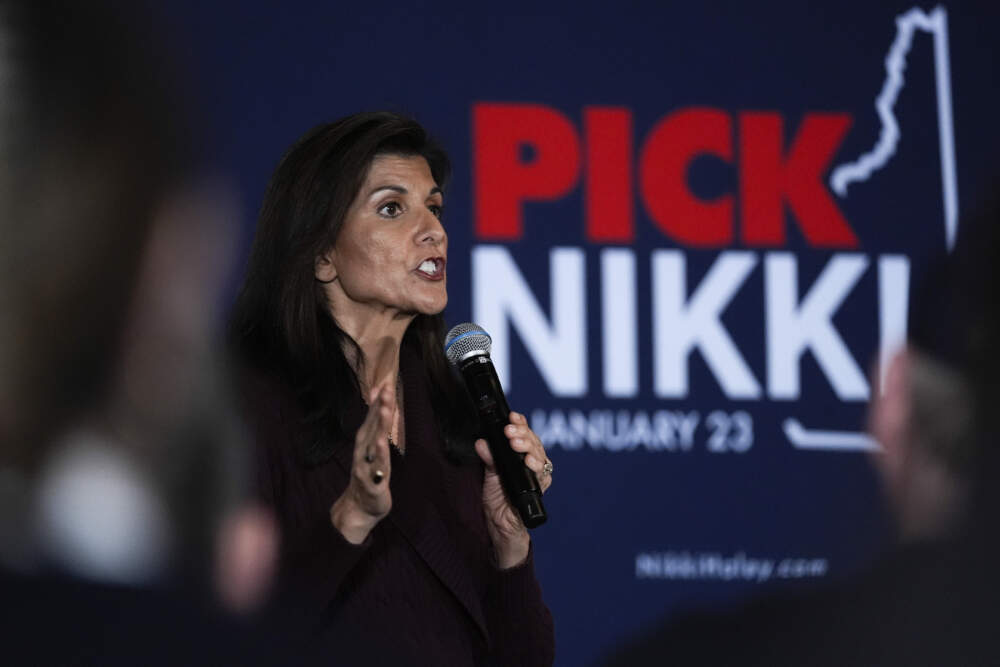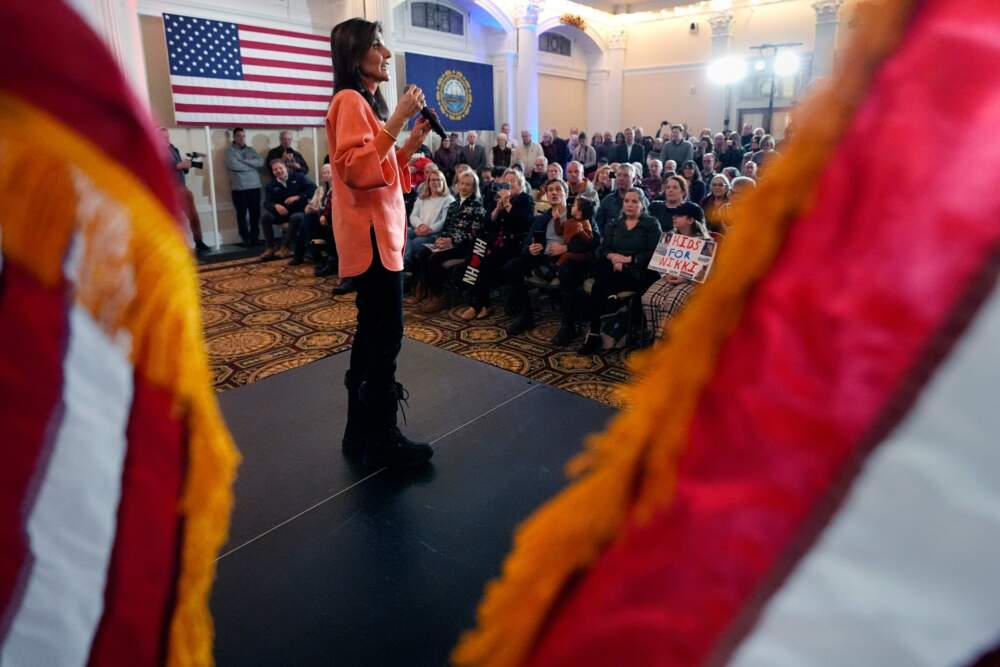Advertisement
Commentary
Nikki Haley is hardly a feminist icon. But her candidacy is a step towards gender equity

Nikki Haley is betting big on the country's first presidential primary, and most New Hampshire voters have the voicemails, text messages and campaign flyers to prove it.
Haley has cash, powerful allies and a message that resonates with Granite Staters seeking a rational voice in this untraditional election. Former President Donald Trump remains the favorite, especially after his sweeping victory in Iowa, but Haley is polling well enough to make the next few days interesting.
Something else may be working in her favor, too. Although she’s the lone woman in the Republican field, Haley has mostly escaped the sexist news coverage that has long haunted female candidates. Women have made huge political gains in the last few elections, but the political press still often treats them differently than their male counterparts. Men get more coverage for their policy and campaign strategies. News about female politicians, meanwhile, is often focused on personal traits like wardrobe choices, marital status and sex appeal.
This type of bias is particularly harsh when women seek high-profile positions like the presidency. The problem dates back to 1872, when Victoria Woodhull became the first woman to run for president. The press dubbed her a “lunatic” and called her “Mrs. Satan.” More recent examples include a 1984 Denver Post column proclaiming that Democrat Geraldine Ferraro, the first woman to appear on a major party’s ticket, had “nicer legs than any previous vice-presidential candidate.” During the 2008 election, Republican vice-presidential nominee Sarah Palin was similarly objectified. The same was true for Hillary Clinton, whose new hairstyle was cited by the The Washington Post as evidence she would soon announce her White House bid.
Media researchers call this phenomenon “novelty framing” and argue it may reduce the legitimacy of women candidates in voters’ eyes. This hasn’t been the case with Haley — perhaps in part because the fact that Trump’s strongest challenger happens to be a woman is the least novel thing about this primary.
Trump is seeking a non-consecutive second term, something no former president has tried in more than a century. He’s also facing breathtakingly complex legal challenges: 91 charges across four criminal cases, all of which could pull him away from traditional campaigning.
On the Democratic side, President Joe Biden doesn't appear on the New Hampshire ballot because the national party stripped the Granite State of its delegates and its official first-in-the-nation status. Biden supporters have organized a write-in campaign.
All of this makes news coverage of Haley, which has focused mostly on fundraising, policy views and her efforts to connect with moderate voters, seem refreshingly normal. And that may be helping her message get through.

She’s also benefiting from decades of hard work to improve gender representation in media and politics. Although the news industry is still dominated by men, a significant number of women journalists are in positions of power on and off the campaign trail. And candidates like Haley, who largely avoids discussing her potential to make history as the county’s first female president, have more examples than ever before of what it looks like for a woman to run a viable campaign.
She hasn't been completely exempt from sexist comments. Last year, CNN's Don Lemon had to apologize after he said Haley, who is 51, "isn't in her prime."
Still, it’s been a long, slow march to get here. Women’s entry into modern presidential politics has unfolded in fits and starts over the last 60 years. The press, more often than not, has added to the headwinds they faced. Republican Sen. Margaret Chase Smith was the first woman candidate to appear on a New Hampshire primary ballot. News coverage of her 1964 campaign, while polite, tended to question the seriousness of her run. She received just over 2% of the vote. The first woman to seek the Democratic nomination, Rep. Shirley Chisholm, skipped the Granite State in 1972 to focus on other primaries. Chisholm, also the first major party Black presidential candidate, was initially barred from televised debates but still won 152 convention delegates.
A handful of other women launched campaigns in the years that followed. None drew significant support, although Elizabeth Dole did well in some early polls when she sought the 2000 GOP nomination. She still faced sexist coverage from male political reporters, and her campaign floundered. In 2008, Hillary Clinton became the first woman to win the New Hampshire primary. (Although the reasons Clinton lost the election then and in 2016 are complex, there's no doubt that sexism in the news media and society played a role.)
Four years ago, a record number of experienced, well-funded women — including Kamala Harris, now the first woman vice president — entered the Democratic primary. There were plenty of news stories about the diversity of the Democratic field, but that coverage didn’t eclipse policy debates.
Haley is far from a feminist icon. Many of her policies, especially those on abortion access and health care for transgender people, would set us back. She’s also rightly drawn criticism for her remarks on slavery and racism. Still, many Granite Staters see her as a legitimate contender for the nomination, one who is, in their minds, the best alternative to Trump. This is reflected in coverage of her campaign — and that’s a good thing for gender equity in civic life.
The final few days of the New Hampshire primary are unfolding outside the bounds of conventional wisdom. The state has plenty of college-educated Republicans and independent voters who lean toward Haley. At the same time, Trump flags and MAGA hats are easy to find. That means all of this — the campaign TV ads, the get-out-the-vote text messages, the fliers jamming mailboxes — could be for naught, and the 2024 primaries may end in the Trump-Biden rematch few Americans want.
But perhaps we’ll be able to look back on this election cycle as the one in which the political media finally leaves its gender bias in the dustbin of history.
